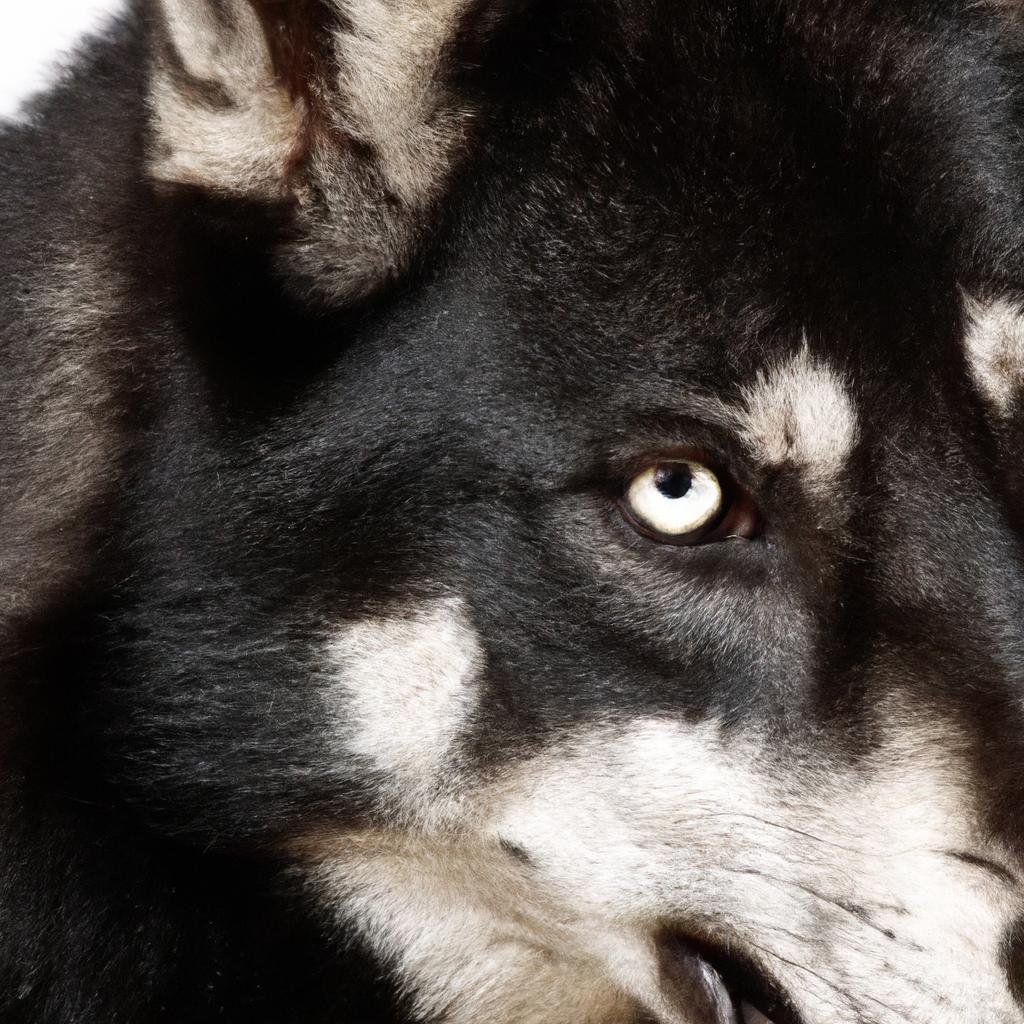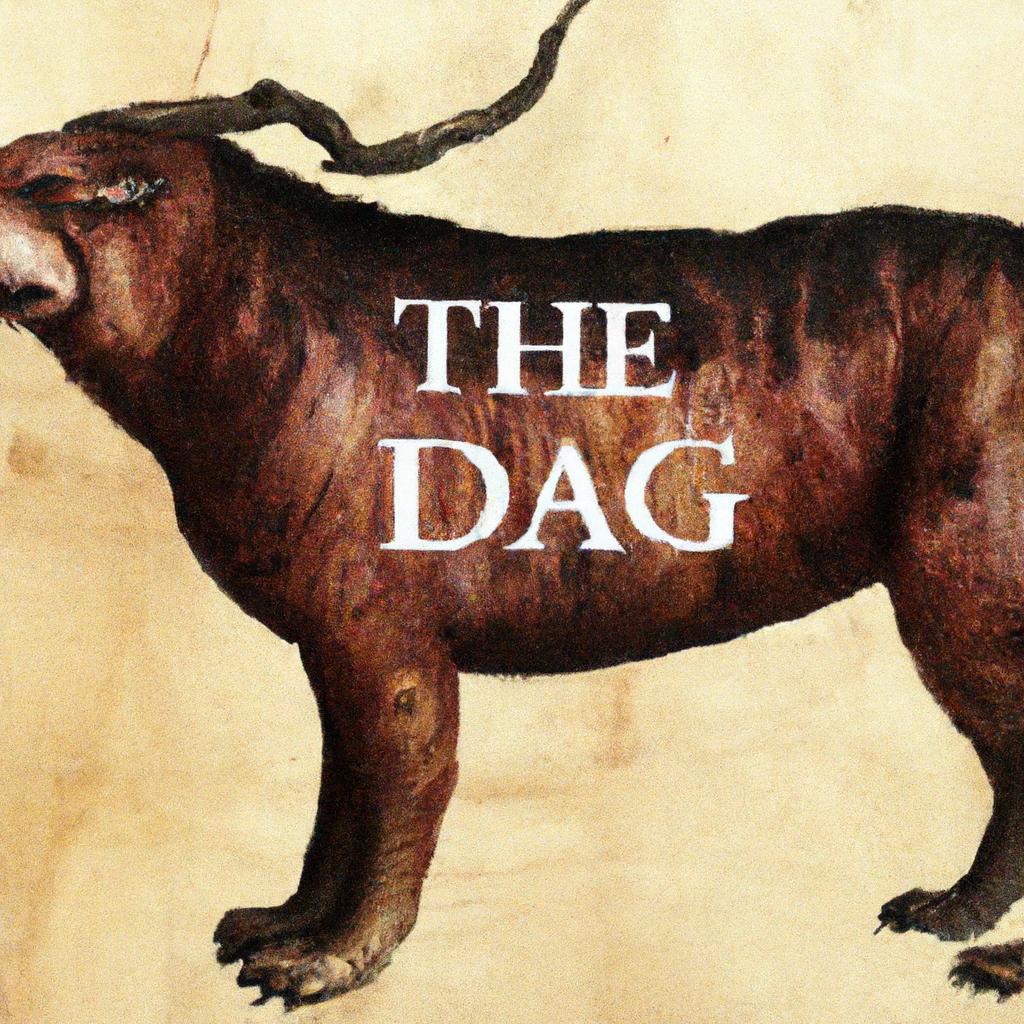Once upon a time in the snowy wilderness, a curious child spotted a majestic husky running alongside a pack of wolves. Intrigued, she wondered: “Is the husky a wolf?” As she observed, she noticed the husky’s playful demeanor and friendly eyes, contrasting with the wolves’ wild instincts. While huskies share a common ancestor with wolves, they are distinct breeds, bred for companionship and work. Understanding this difference enriches our appreciation for both animals. So, let’s celebrate the husky for its unique traits, rather than confusing it with its wild counterpart.
Contents
- Understanding the Genetic Relationship Between Huskies and Wolves
- Examining Behavioral Traits: Are Huskies More Like Wolves Than Dogs?
- The Role of Environment and Training in Shaping Husky Characteristics
- Making Informed Choices: What Potential Husky Owners Should Consider
- Q&A
Understanding the Genetic Relationship Between Huskies and Wolves
The genetic relationship between Huskies and wolves is a fascinating topic that delves into the evolutionary history of these remarkable animals. Both belong to the Canidae family, which also includes other species such as foxes and domestic dogs. However, the similarities between Huskies and wolves extend beyond mere classification; they share a significant amount of genetic material, which has led to intriguing discussions about their ancestry and behavior.
Research indicates that Siberian Huskies, like many other dog breeds, descended from a common ancestor with wolves thousands of years ago. This shared lineage has resulted in certain physical and behavioral traits that are reminiscent of their wild counterparts. For instance, Huskies exhibit a strong prey drive, a characteristic that can be traced back to their wolf ancestors. Additionally, their striking appearance, with thick fur and piercing blue or multi-colored eyes, often evokes the image of a wolf, further blurring the lines between the two species.
Despite these similarities, it is essential to recognize the differences that have emerged due to domestication. Huskies have been bred for specific traits that cater to human needs, such as companionship and work in harsh climates. This selective breeding has led to variations in temperament and behavior that distinguish them from their wild relatives. While wolves are instinctively pack animals with complex social structures, Huskies have adapted to living alongside humans, often displaying a more playful and sociable demeanor.
Understanding the genetic relationship between these two animals not only enriches our knowledge of canine evolution but also informs responsible pet ownership. Recognizing that Huskies retain some wolf-like traits can help potential owners prepare for the unique challenges that come with raising such a breed. By appreciating their heritage, we can foster a deeper connection with Huskies, ensuring that they receive the care and environment they need to thrive as both companions and descendants of their wild ancestors.
Examining Behavioral Traits: Are Huskies More Like Wolves Than Dogs?
When exploring the behavioral traits of Huskies, one cannot help but notice the striking similarities they share with their wild ancestors. These dogs exhibit a range of characteristics that echo the primal instincts of wolves, making them a fascinating subject of study. For instance, Huskies are known for their strong pack mentality, which is a fundamental trait inherited from their wolf lineage. This instinct drives them to form close bonds with their human families and other pets, often leading to a loyal and affectionate demeanor.
Another notable aspect of Huskies is their impressive vocalization skills. Unlike many dog breeds that communicate primarily through barking, Huskies are renowned for their howling, a behavior that closely resembles that of wolves. This vocal trait serves various purposes, from expressing excitement to signaling their location to other pack members. Such communication methods highlight their deep-rooted connection to their wild counterparts, showcasing a blend of instinct and social interaction that is both captivating and complex.
Moreover, Huskies possess a remarkable level of independence, often displaying a stubborn streak that can be traced back to their wolf ancestry. This independence can manifest in various ways, such as a reluctance to follow commands or a tendency to explore their surroundings without hesitation. While this trait can pose challenges for training, it also reflects their natural instincts as hunters and foragers, emphasizing their need for mental stimulation and physical activity to thrive.
the physical attributes of Huskies further reinforce their wolf-like qualities. With their striking blue or multi-colored eyes, thick double coats, and strong, athletic builds, they embody the essence of a wild creature. This resemblance is not merely superficial; it plays a significant role in their behavior and adaptability. Huskies are bred for endurance and resilience, traits that are essential for survival in harsh environments, much like their wolf relatives. Understanding these behavioral traits allows us to appreciate the unique blend of wild and domestic characteristics that define the Siberian Husky.
The Role of Environment and Training in Shaping Husky Characteristics
The characteristics of Huskies are profoundly influenced by both their environment and the training they receive from their owners. These dogs, known for their striking appearance and energetic demeanor, thrive in settings that allow them to express their natural instincts. A stimulating environment that includes ample space to run, play, and explore is essential for their well-being. When Huskies are raised in an environment that mimics their original habitat, they tend to exhibit traits such as independence, intelligence, and a strong pack mentality.
Training plays a crucial role in shaping a Husky’s behavior and temperament. Positive reinforcement techniques are particularly effective, as these dogs respond well to encouragement and rewards. By establishing a consistent training routine, owners can help their Huskies develop essential skills and good manners. This not only enhances the bond between the dog and its owner but also curbs undesirable behaviors that may arise from boredom or lack of direction. Key training aspects include:
- Socialization: Introducing Huskies to various people, animals, and environments helps them become well-adjusted adults.
- Obedience Training: Teaching basic commands fosters discipline and ensures safety during outdoor activities.
- Exercise Routines: Regular physical activity is vital for channeling their energy and preventing destructive behaviors.
The interplay between environment and training can also influence a Husky’s adaptability. Huskies are known for their resilience and ability to thrive in diverse conditions, but this adaptability can be enhanced through proper guidance. For instance, exposing them to different climates, terrains, and social situations can help them become more versatile. Furthermore, consistent training in various environments can prepare them for unexpected challenges, making them more confident and less anxious in unfamiliar settings.
Ultimately, the combination of a nurturing environment and effective training creates a harmonious balance that allows Huskies to flourish. Owners who invest time and effort into understanding their dogs’ needs will likely witness a transformation in their Huskies’ behavior and personality. By fostering a supportive atmosphere and implementing structured training, you can help your Husky develop into a well-rounded companion, showcasing the best of their unique characteristics.
Making Informed Choices: What Potential Husky Owners Should Consider
When considering the addition of a Siberian Husky to your family, it’s essential to understand their unique characteristics and needs. These dogs are known for their striking appearance and energetic nature, but potential owners must recognize that they require a significant commitment. **Huskies are not just pets; they are active, intelligent, and social animals** that thrive in environments where they can engage both physically and mentally. Before making a decision, assess your lifestyle and ensure that you can provide the necessary time and attention.
One of the most critical aspects to consider is the **Husky’s exercise requirements**. These dogs were bred for endurance and have a high energy level, which means they need regular, vigorous exercise to stay healthy and happy. Potential owners should be prepared to dedicate time to daily walks, runs, or play sessions. Without adequate physical activity, Huskies can become bored and may exhibit destructive behaviors. Think about your daily routine and whether you can incorporate sufficient exercise into your life.
Another important factor is the **Husky’s social nature**. They are pack animals and thrive on companionship, whether from humans or other dogs. If you work long hours or travel frequently, a Husky may not be the best fit for your household. Consider the dynamics of your home and whether you can provide the social interaction that these dogs crave. If you already have pets, it’s crucial to assess how a new Husky would fit into your existing family structure.
Lastly, potential owners should educate themselves about the **Husky’s grooming and health needs**. While their thick double coat is beautiful, it requires regular brushing to manage shedding and prevent matting. Additionally, Huskies can be prone to specific health issues, so understanding their medical needs and potential costs is vital. Researching reputable breeders or rescue organizations can also help ensure that you are adopting a healthy dog. Being informed about these aspects will not only enhance your experience as a Husky owner but also contribute to the well-being of your new furry friend.
Q&A
-
Are Huskies and Wolves the Same Species?
No, Huskies and wolves are not the same species. Huskies are domesticated dogs (Canis lupus familiaris), while wolves are wild animals (Canis lupus). Although they share a common ancestor, their evolutionary paths diverged thousands of years ago.
-
Do Huskies Have Wolf Ancestry?
While Huskies do not have direct wolf ancestry, they are part of the same family. Some breeds, like the Siberian Husky, were developed from ancient dog breeds that may have had interactions with wolves, but they are distinctly domesticated animals.
-
Can Huskies Behave Like Wolves?
Huskies can exhibit certain behaviors similar to wolves, such as pack mentality and strong social bonds. However, their behavior is influenced by domestication, training, and human interaction, making them more suitable as pets than wild animals.
-
Are Huskies Dangerous Like Wolves?
No, Huskies are generally not dangerous like wolves. They are known for their friendly and playful nature. Proper training and socialization are essential to ensure they are well-adjusted pets. Unlike wolves, Huskies thrive in human companionship and are not aggressive by nature.
while huskies share a striking resemblance to wolves and possess some similar traits, they are distinct breeds with unique characteristics. Understanding these differences enriches our appreciation for both animals and their roles in our lives.

大家好,我是彼得潘,專業的手法身體治療師。我喜歡探索和研究各種主題,並透過與人工智慧的合作分享專業、實用、有趣的文章。我們定期進行人工審核,以確保內容的準確性。如果您發現文章中有任何不準確的地方,請隨時與我們聯繫,我們會及時糾正。您可以透過 [email protected] 與我們聯繫。



